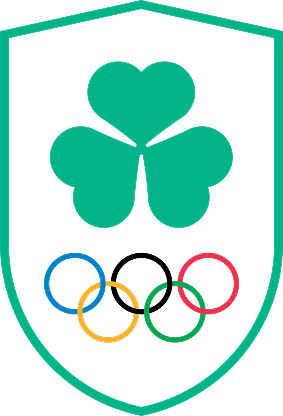Described as ‘the mastermind behind Team Ireland’s success in boxing’, Zauri Antia was the very popular winner of the OFI’s prestigious President’s Award recently for services to Irish Olympic sport. The word ‘mastermind’ conjures up images of an evil genius hiding his secrets in a mountainous lair but there is nothing surreptitious about Antia or his coaching expertise which is now world-renowned and coveted.
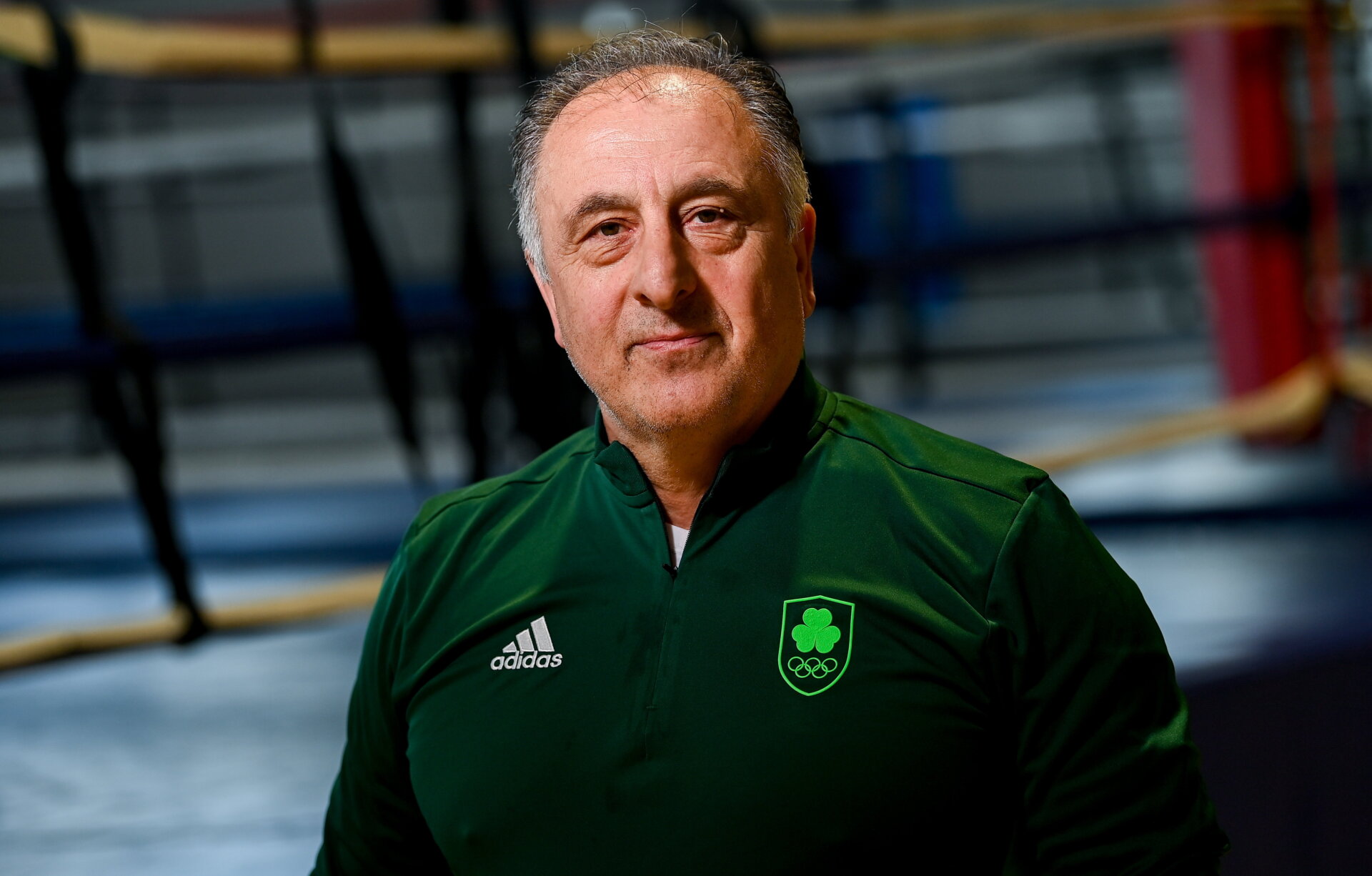
It is 20 years since ‘Zauri’, as his friends call him, first arrived from his native Georgia to work in Ireland’s nascent high performance boxing unit to whom he was recruited in 2003, as ‘technical coach’, by Gary Keegan.
Ten years ago he took over as IABA’s Head Coach and he will turn 61 next August, five days after the end of the 2024 Summer Olympics, which could coincide with Irish boxers adding further to the sport’s phenomenal haul of 18 of Ireland’s 35 Olympic medals to date. Half of those have been won during Antia’s involvement which has also coincided with a remarkable 140 Irish medals at major boxing tournaments, ranging from EU tournaments to European and World Championships.
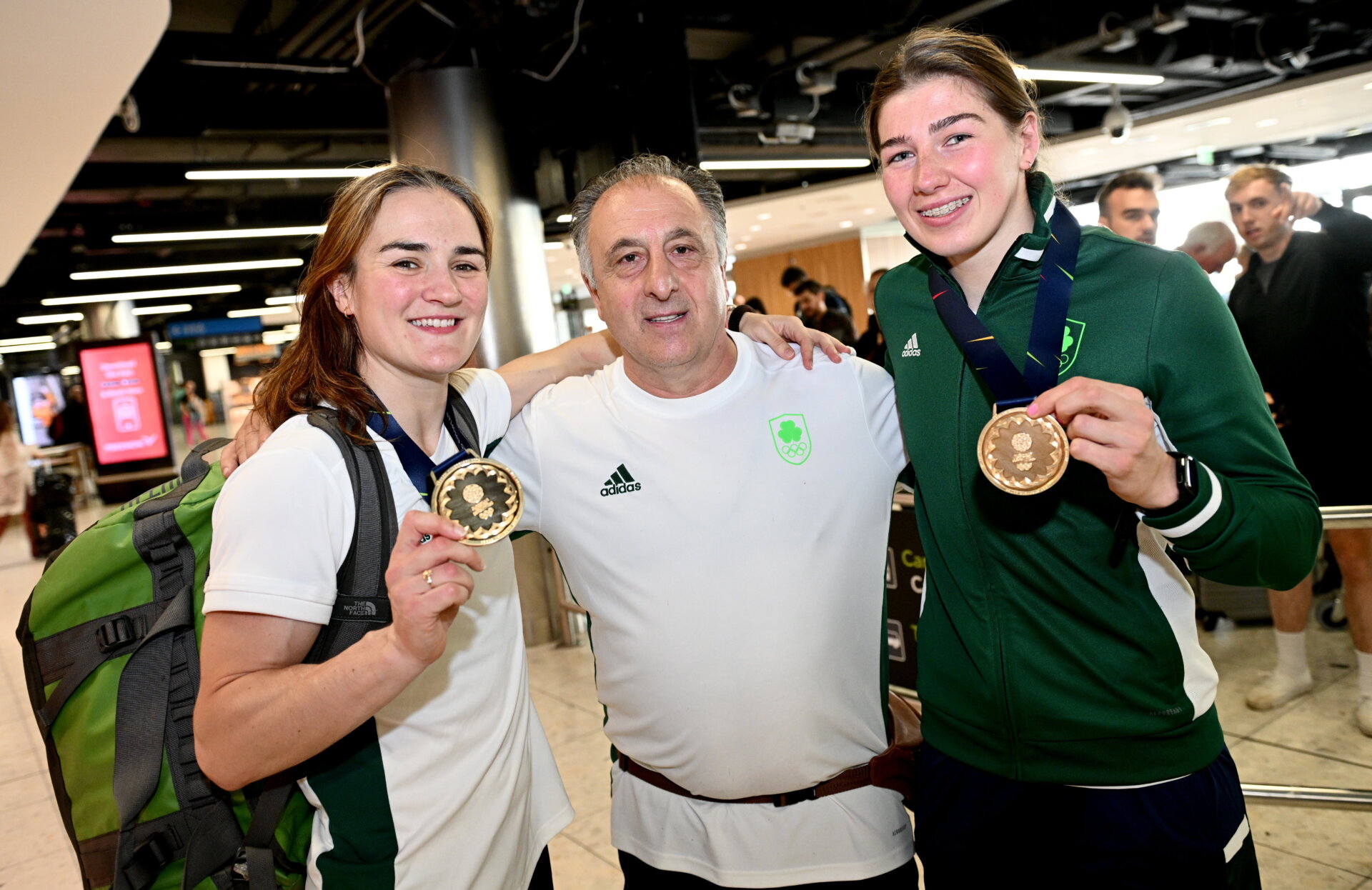
Most days you’ll find him in the thick of things at the IABA’s elite training centre in the Institute of Sport, working the pads and meticulously demonstrating the skills and movement patterns that have created some of the most technically gifted boxers in the world. When he first arrived his only language was Georgian but he was fluent in boxing and spoke through demonstration. Now he is articulate and eloquent in English too, particularly about coaching.
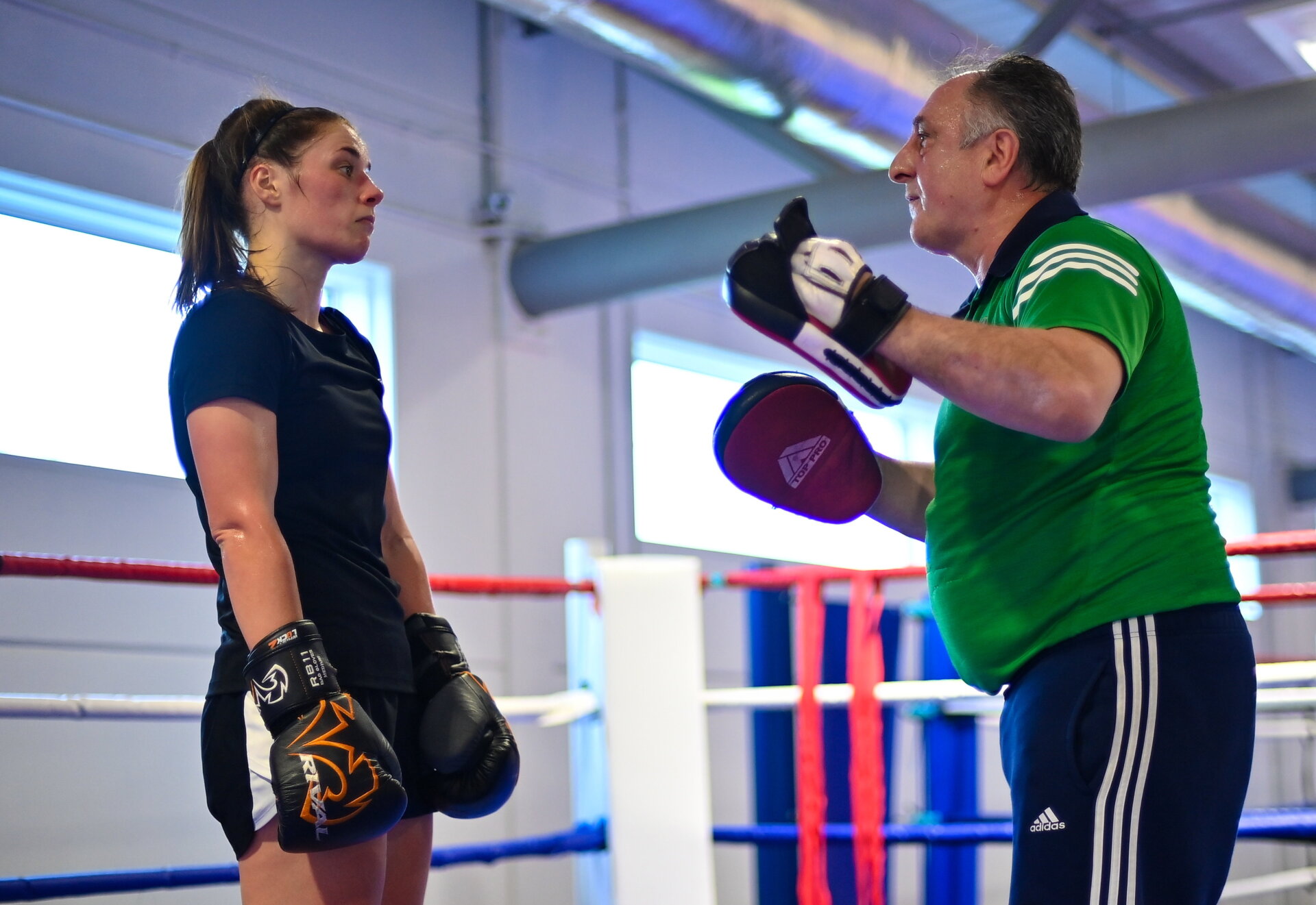
“Life is about breaking boundaries all the time,” he says. “Sometimes old things become fresh and new. The person who has an improvement mindset will always use the profoundness of (past) experience effectively in the future.” Great coaches, Antia also believes, “have the ability to see, the ability to explain and the ability to remain positive always and have good fun at the same time. Motivation is the key for everything.”
He was blessed with a great coach himself in Tariel Verulashvili in his hometown of Poti, a large port and seaside town on the Black Sea, of which his longtime adopted home of Bray reminds him. Antia was a six-time Georgian champion and a USSR regional (Caucusas) bronze medallist at 63.5kg at the height of Russia’s domination of world boxing, before his country declared independence in 1991.
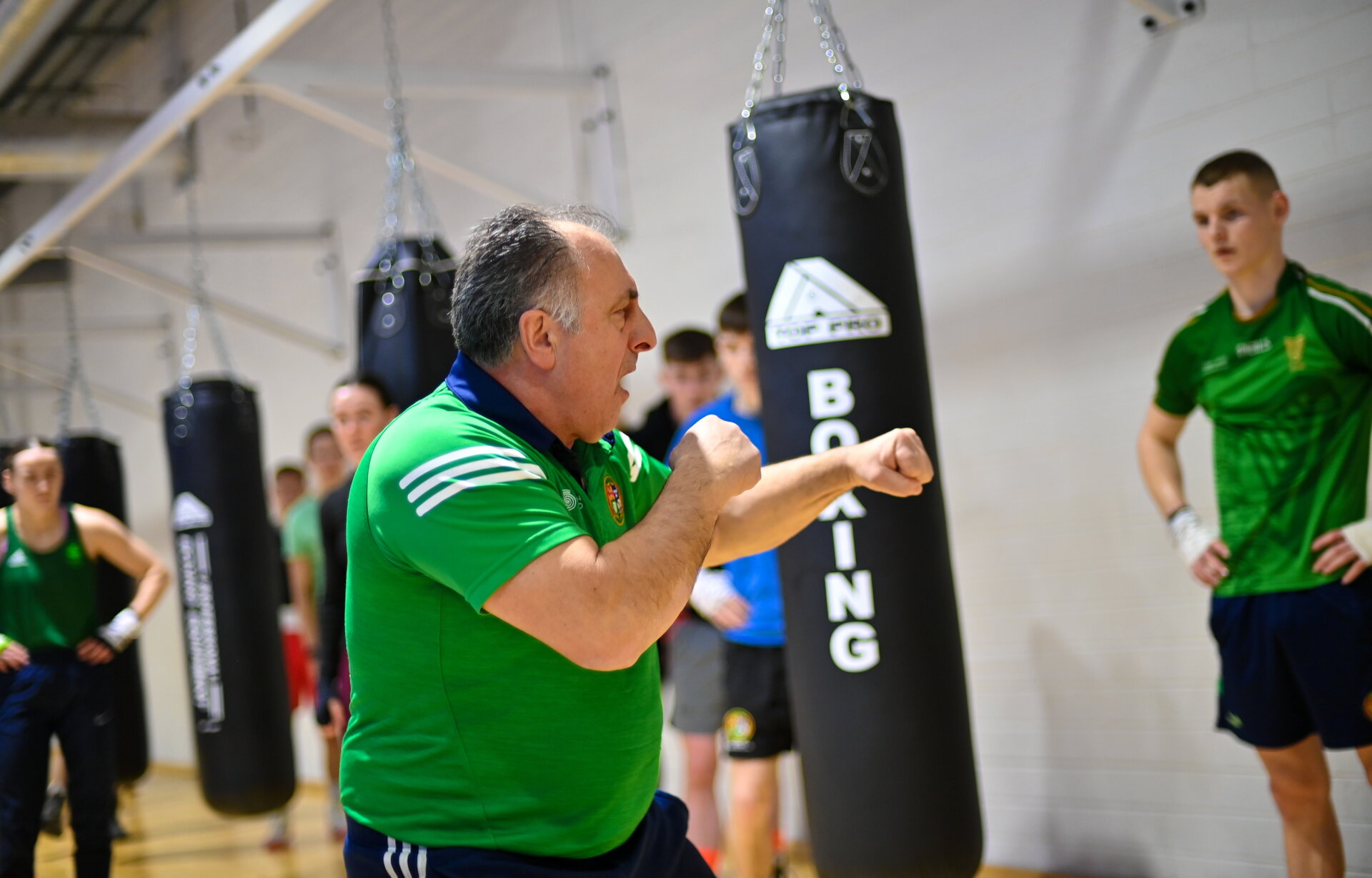
1991. Verulashvili was much more than a coach to him. “He was like my father, a huge influence. He did not just cultivate me as a boxer but developed me in life too and employed me,” he explains. Armed with a degree in sports science and management from Tbilisi University of Sport, that first job was as a community sport organiser, within the port of Poti, covering ten local organisations and a massive 10,000 employees. Under the old USSR regime, daily sport and fitness was encouraged to maximise health and productivity among workers.
So, at 2pm, for 30 minutes, everybody would leave their desks to do activities and Antia organised all the competitions and logistics in sports that varied from wrestling and football to fishing and chess. Verulashvili also got him coaching very early, giving him 12 small boys to work with at their club when he was just 23.
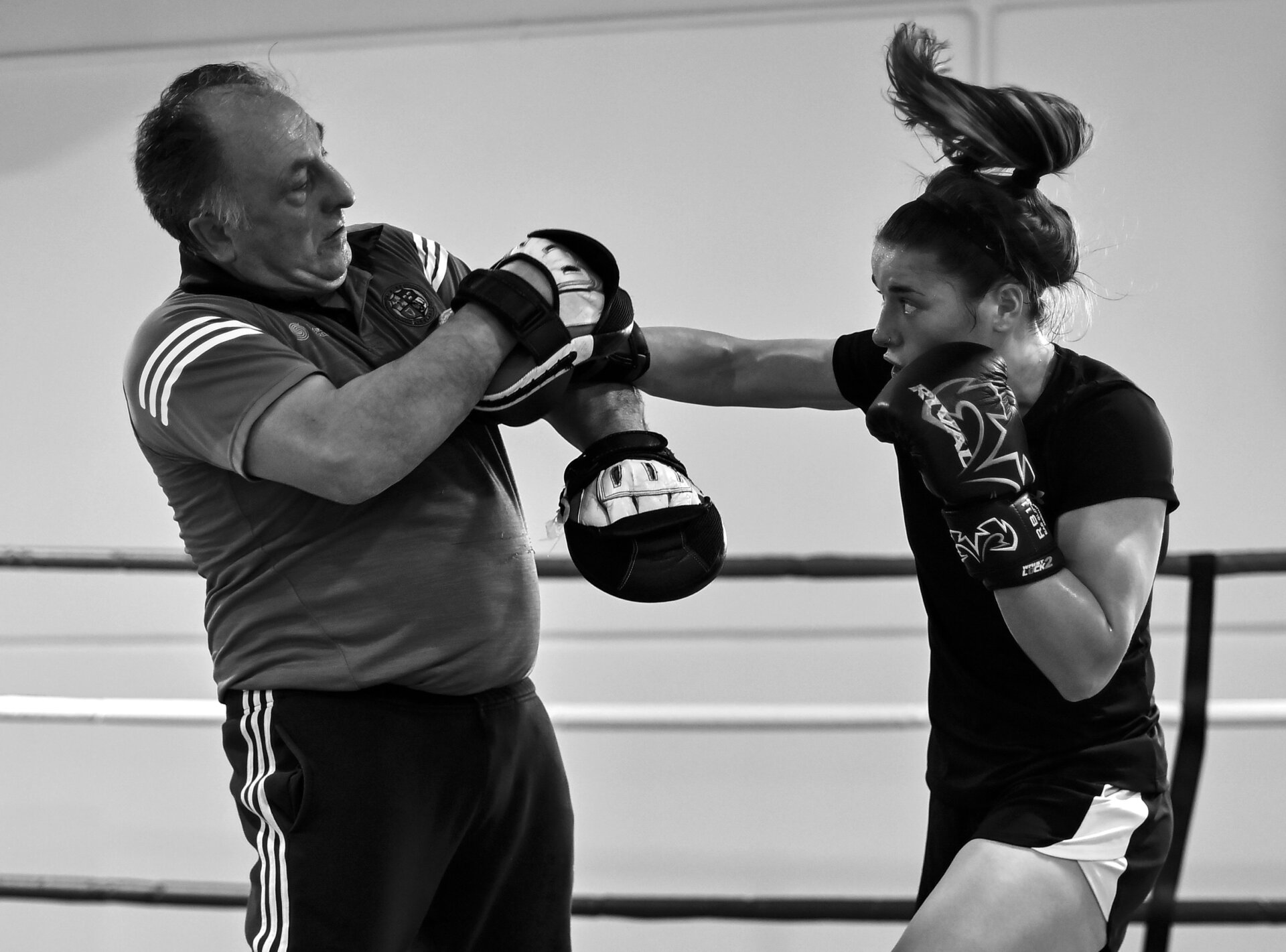
By the time he was spotted by Cork official Daniel O’Connell in 2002 (who was visiting Poti to help train some local judges and referees) he was head coach and director of his club and had developed his own coaching style and philosophy. His own coach’s approach was “more Russian style, attack, attack” but Antia was subsequently influenced by a coach he encountered on the national team. “I respect more counter-attack skills.
My work area was more the centre of the ring and movement – active jab activity, feinting skills. There are fighting skills and counter-attacking skills and I had the ability to see how I could teach both. The ‘universal boxer’ can fight any distance and style, that’s the solution I came to.”
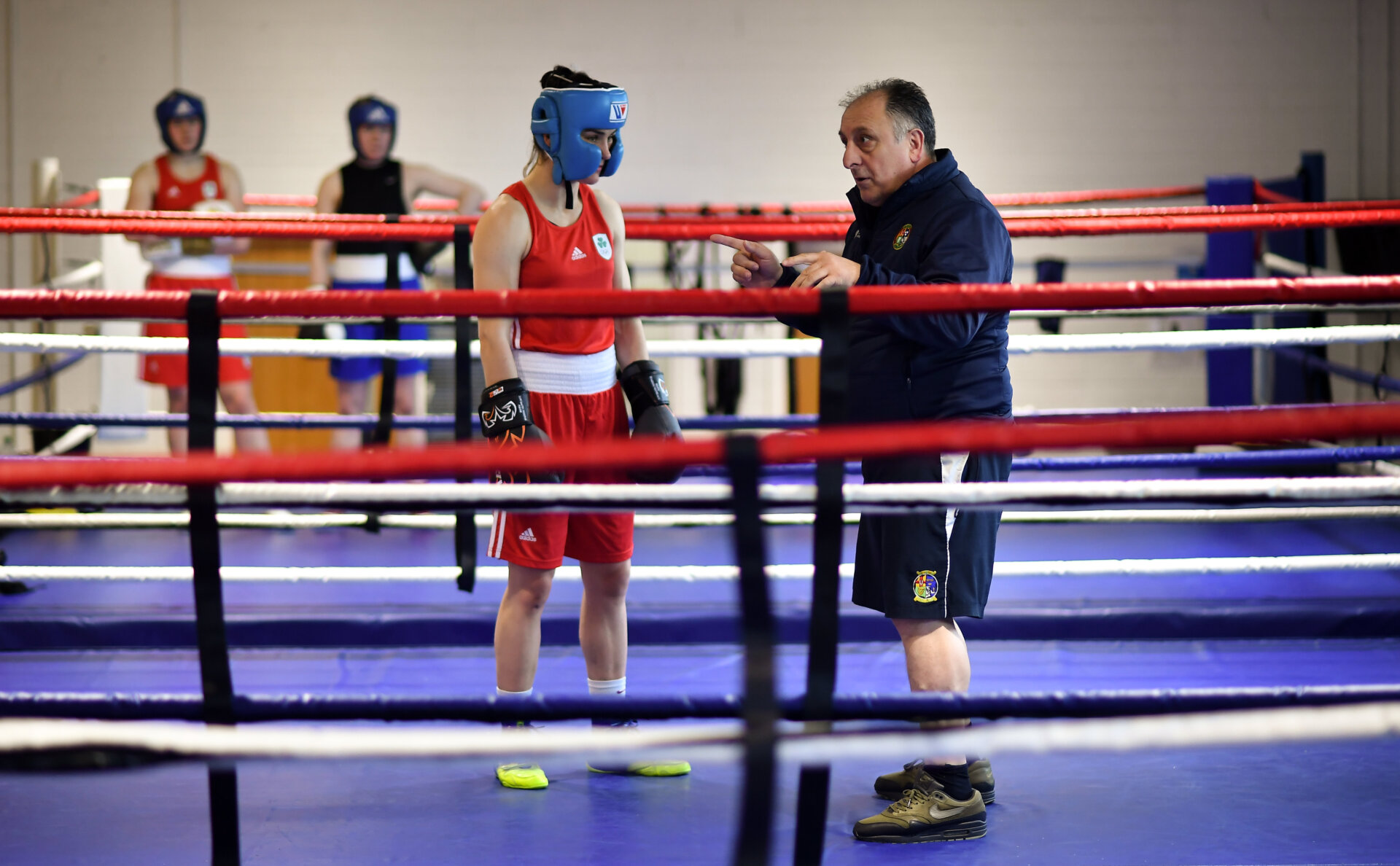
He believes strongly that training should mimic competition in quality and intensity and also stresses the importance of variety and relevance in training; that athletes need to understand the ‘how and why’ of what they’re doing. “If you don’t have productive work (training) boxers won’t come in.
Your plan of work must be motivating, each session should be interesting. Every session we do everyone is fully focussed. You can see their faces changing. “Everything (in training) is close to (competition) reality and we have not one but a few options because one could be blocked. Boxers have to be smart in a very short, limited time, capable of making quick changes.”
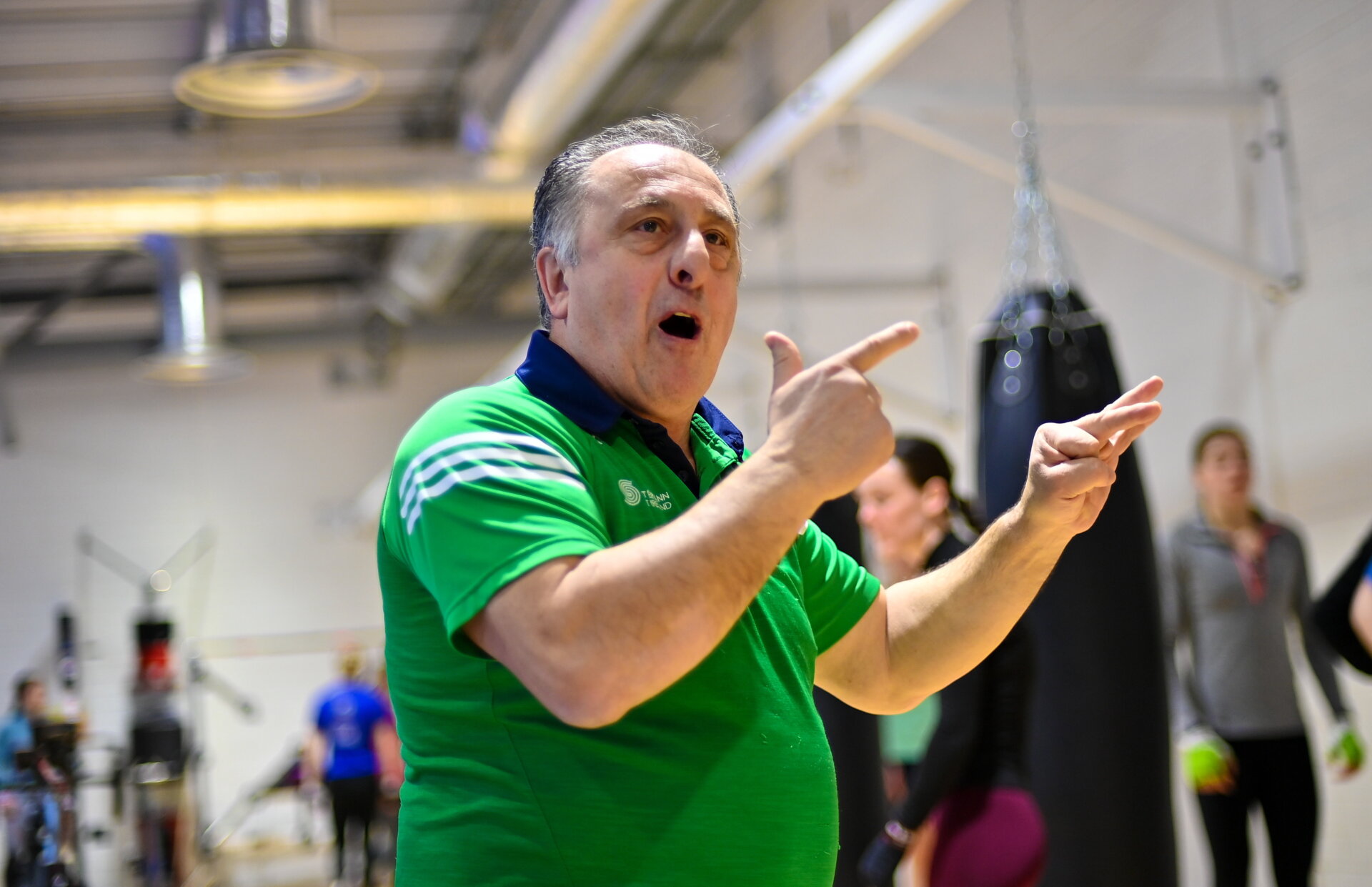
Irish boxers attest that Antia keeps in supportive contact with them long after they have left the national programme, as much a father figure to them as his own coach was to him. Away from the ring he is a jovial character who plays piano and chess but it is fair to say that, apart from boxing, Antia’s other great passion is his family; wife Nona, children Natia, David and Georghe and four adored grand-children, who, to his delight, will be extended to six in 2024.
